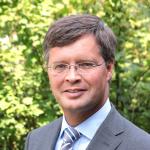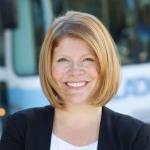Title
An invitation to the table: listening to all for better access for all
Session
19 May
16:30 to 18:00
Hall 3, Level +1
Orla McCarthy, ITF, opened the session with the main takeaways from the Pre-Summit Research Day for developing more accessible and inclusive transport systems for all:
- Transport systems need to be planned to be accessible by design.
- Policy-makers need to consult with all relevant stakeholders from the start for each policy or initiative, including user groups that might not be traditionally included in policy design.
- They need to understand the challenges that main stakeholders and user groups face in making their voices heard. Rigourous research can contribute to this.
Speakers responded on the challenges and opportunities for giving a voice to relevant stakeholders and user groups, focusing on:
- the more than 1.8 million transport users in the Netherlands who are at risk of mobility poverty - being unable to access essential opportunities due to a lack of effective access to mobility options;
- authorities of developed and emerging economies looking for a platform to exchange on and promote sustainable mobility
- traditionally unheard voices of some residents of Los Angeles, such as people of colour
- people with disabilities and other transport users in San Francisco and Phoenix are engaging with Waymo to promote autonomous mobility solutions
Concerning some of the challenges for hearing the voices of these groups, speakers mentioned:
- It is essential to understand the complexity of co-existing challenges that can affect users: challenges linked to the socio-economic status, for instance, can interlink with age, gender and migratory-status challenges in different ways, depending on each individual user
- Policy-makers need to look at transport challenges in interaction with other sectors, such as land use and energy, in order to find holistic solutions. Decisions need to be taken with all relevant stakeholders.
- Policy-makers need to understand and find ways to work around potential mistrust against institutions coming from user groups. Building trust in institutions is an important component, which will not be immediate.
- Enterprises might need to tailor technology products and business models to the needs and realities of each community where they are implemented
To face these challenges, speakers proposed the following solutions:
- Adapt project selection and funding to include criteria that go beyond efficiency and include social and environmental sustainability considerations
- Increase community-based research to make sure that the specific needs of various user groups are understood
- Also leverage new technology tools for better understanding and responding to the needs of different user groups
- Promote better data-collection systems to understand trip purposes and the characteristics of destinations, including geographically distant places. This is needed, for instance, for deploying new mobility innovations
As final remarks, speakers stressed:
- Making sure that all relevant stakeholders and users are reached out to in the development of new policies and initiatives
- Having a mindset that focuses on collective abundance by highlighting the common benefits of more sustainable and inclusive mobility solutions – rather than on the negative consequences that a measure could have for different stakeholders
- Having the humility and willingness to recognise previous mistakes and to correct them with a forward-looking perspective
- Recognising the importance of addressing inequalities and linking transport policy with other sectors to make sure that no one is left be



